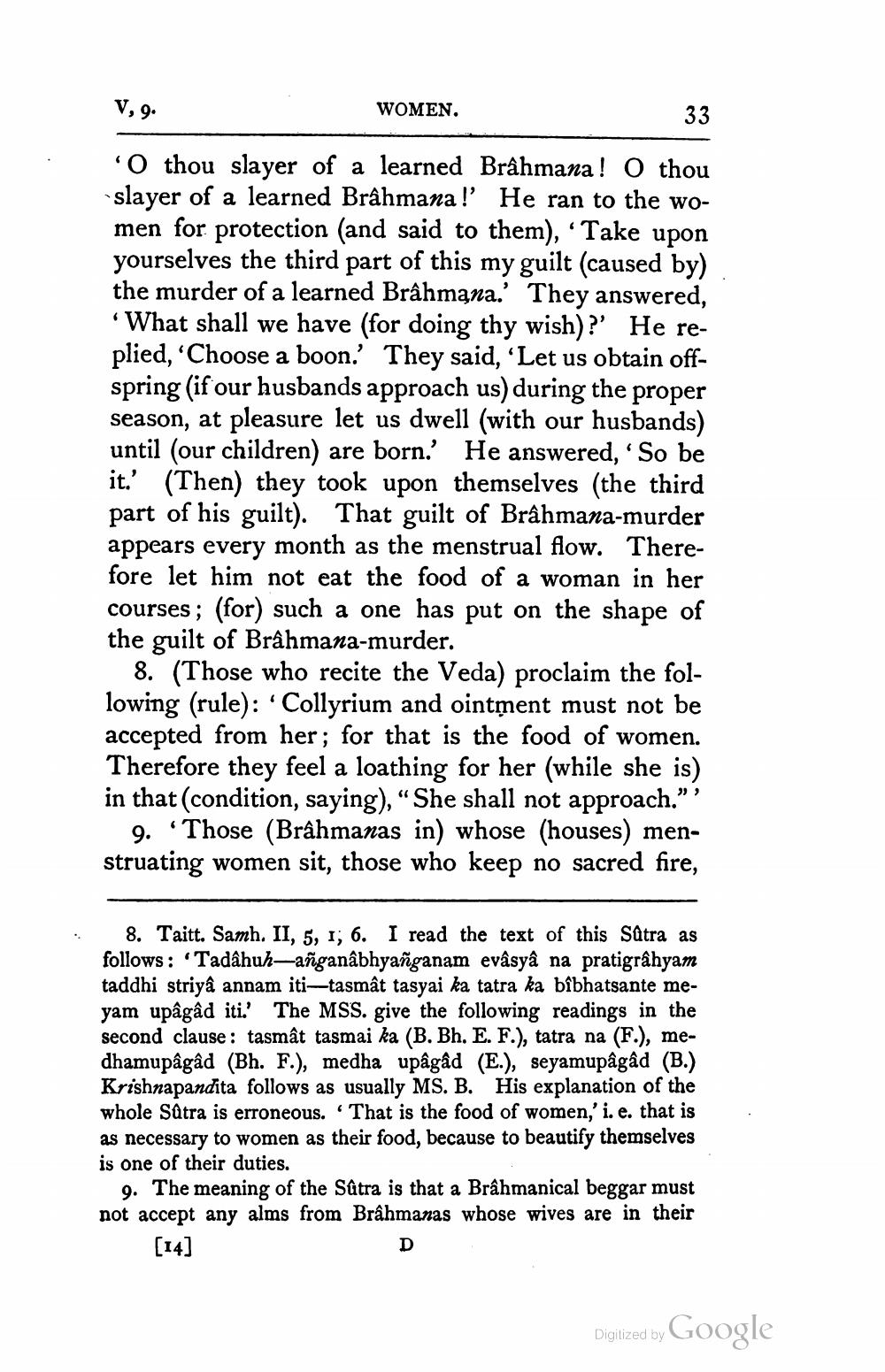________________
V, 9.
WOMEN,
33
O thou slayer of a learned Brâhmana! O thou slayer of a learned Brahmana!' He ran to the women for protection (and said to them), 'Take upon yourselves the third part of this my guilt (caused by) the murder of a learned Brâhmana.' They answered, • What shall we have (for doing thy wish)?' He replied, 'Choose a boon. They said, 'Let us obtain offspring (if our husbands approach us) during the proper season, at pleasure let us dwell (with our husbands) until (our children) are born.' He answered, 'So be it.' (Then) they took upon themselves (the third part of his guilt). That guilt of Brâhmana-murder appears every month as the menstrual flow. Therefore let him not eat the food of a woman in her courses; (for) such a one has put on the shape of the guilt of Brâhmana-murder.
8. (Those who recite the Veda) proclaim the following (rule): Collyrium and ointment must not be accepted from her; for that is the food of women. Therefore they feel a loathing for her (while she is) in that (condition, saying), “She shall not approach.”'
9. Those (Brahmanas in) whose (houses) menstruating women sit, those who keep no sacred fire,
8. Taitt. Samh. II, 5, 1; 6. I read the text of this Satra as follows: "Tadâhuh-anganâbhyañganam evâsyâ na pratigrâhyam taddhi striyâ annam iti-tasmât tasyai ka tatra ka bîbhatsante meyam upâgâd iti.' The MSS. give the following readings in the second clause: tasmât tasmai ka (B. Bh. E. F.), tatra na (F.), medhamupâgâd (Bh. F.), medha upâgâd (E.), seyamupâgâd (B.) Krishnapandita follows as usually MS. B. His explanation of the whole Satra is erroneous. That is the food of women,' i.e. that is as necessary to women as their food, because to beautify themselves is one of their duties.
9. The meaning of the Sutra is that a Brâhmanical beggar must not accept any alms from Brâhmanas whose wives are in their
Digitized by Google




